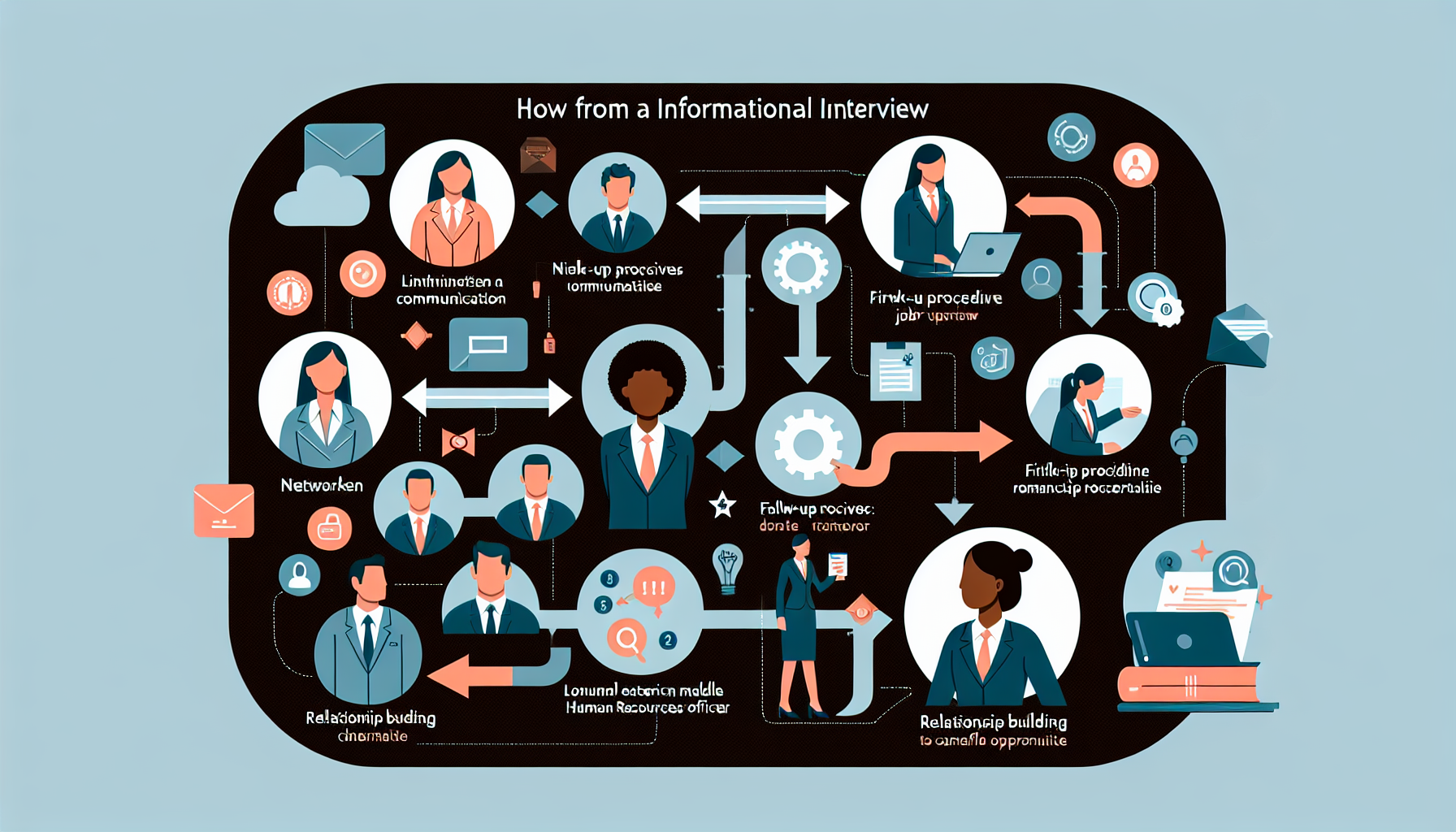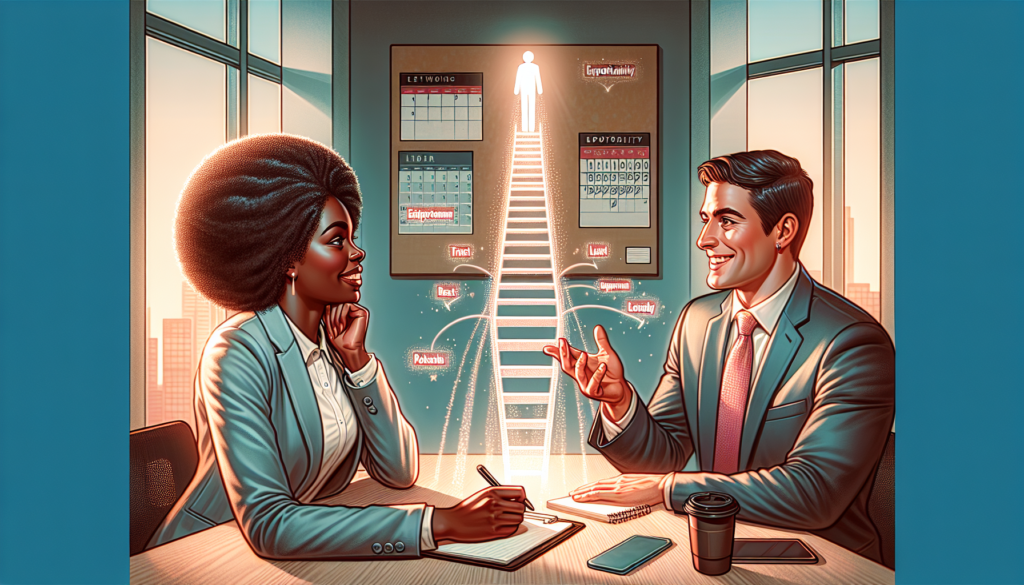From Conversation to Opportunity: Mastering the Art of Informational Interviews in 2025
Meta: Learn how to transform informational interviews into job opportunities through strategic networking, relationship building, and follow-up techniques. Real success stories and actionable tips included.
Did you know that 85% of all jobs are filled through networking? I was amazed when I first learned this statistic! Even more impressive is how informational interviews, those seemingly casual conversations, can unexpectedly turn into life-changing career opportunities. Take Sarah’s story – what started as a simple 30-minute chat turned into a $23,000 job offer the following week. In this guide, we’ll explore how you can master the art of transforming these valuable conversations into concrete career opportunities!

Understanding the Power of Informational Interviews
When it comes to job searching, informational interviews are a game-changer. But what exactly are they? Unlike traditional job interviews, informational interviews are more casual conversations where you’re gathering information about a company or industry, rather than being evaluated for a specific role.
Think of it as a friendly chat over coffee, where you’re the curious learner and your interviewee is the expert sharing their wisdom. It’s all about building relationships and gaining insights, which can be incredibly powerful in your job search.
Did you know that up to 85% of jobs are filled through networking? That’s right! The old saying “it’s not what you know, but who you know” holds a lot of truth in the job market. Informational interviews tap into this psychology of relationship-based job searching.
However, there are some common misconceptions about informational interviews. Some people think they’re just a sneaky way to ask for a job, or that they’re only for entry-level positions. In reality, they’re valuable at any career stage and are about much more than landing an immediate job offer.
Preparing for Success: Before the Interview
Alright, so you’ve landed an informational interview. Exciting! But before you go in, there’s some homework to do.
First things first, research the company and your interviewer. You want to come across as genuinely interested and well-informed. Check out their website, recent news articles, and LinkedIn profiles. This knowledge will help you craft strategic questions that showcase your interest.
Speaking of questions, prepare a list! But make sure they’re not just surface-level inquiries you could easily Google. Dive deeper. Ask about company culture, future industry trends, or challenges in their role.
It’s also crucial to set clear objectives for the conversation. What do you hope to learn? Who do you want to connect with? Having these goals in mind will help you steer the conversation effectively.
Oh, and don’t forget to polish your elevator pitch! You should be able to succinctly explain who you are and what you’re looking for in about 30 seconds.
Mastering the Art of Subtle Self-Promotion
Now, here’s where it gets tricky. You want to showcase your skills and experience, but without coming across as pushy or self-centered. It’s a delicate balance!
The key is to weave your relevant skills into the natural flow of conversation. For example, if they mention a challenge their company is facing, you could share a brief anecdote about how you tackled a similar issue in your previous role.
When sharing success stories, be humble. Instead of saying “I single-handedly increased sales by 50%,” try something like “I was fortunate to be part of a team that achieved a 50% sales increase.”
Remember to read social cues and timing. If the interviewer seems rushed or distracted, it might not be the best time for a detailed story about your accomplishments.
Above all, focus on building an authentic connection. Show genuine interest in their experiences and insights. People are more likely to help those they like and feel connected to.
Strategic Conversation Navigation Techniques
Alright, you’re in the interview. How do you navigate this conversation like a pro?
Start by opening the dialogue effectively. A simple “Thank you so much for taking the time to meet with me” followed by a brief explanation of why you were eager to speak with them can set a positive tone.
As you move through the conversation, transition between topics smoothly. You might say something like, “That’s fascinating. It reminds me of another question I had about…”
Throughout the interview, demonstrate your industry knowledge. This shows you’ve done your homework and are seriously interested in the field. But be careful not to come across as a know-it-all!
Towards the end of the conversation, don’t be afraid to ask for referrals or recommendations. You might say, “Based on our conversation, is there anyone else you think I should speak with to learn more about this industry?”
The Critical Follow-Up Process
The interview might be over, but your work isn’t done! The follow-up process is critical.
Time your follow-up communications carefully. Send a thank-you note within 24-48 hours of the interview. Make it personal and specific, referencing particular points from your conversation.
But don’t stop there. The goal is to maintain long-term relationships. Check in periodically with updates on your career progress or sharing articles they might find interesting.
Social media can be a great tool for this. Connect with them on LinkedIn, but be professional in your interactions. No cat memes or political rants!
From Connection to Opportunity: Success Stories
Let’s look at some real-world success stories. Take Sarah, for example. She had an informational interview with a marketing director, stayed in touch for months, and was eventually offered a job when a position opened up.
Or consider Tom, who used an informational interview to pivot into a new industry. The insights he gained helped him tailor his resume and nail his next formal interview.
What do these success stories have in common? Persistence, genuine interest, and strategic follow-up.
But it’s not always smooth sailing. Many people have missed opportunities by failing to follow up or by coming on too strong during the interview. The key is to find the right balance.
Interestingly, many hiring managers say they appreciate candidates who’ve taken the initiative to conduct informational interviews. It shows proactivity and genuine interest in the industry.

Conclusion
Wrap up with key takeaways and actionable steps readers can implement immediately. Include a motivational call-to-action encouraging readers to schedule their first informational interview within the next week.




